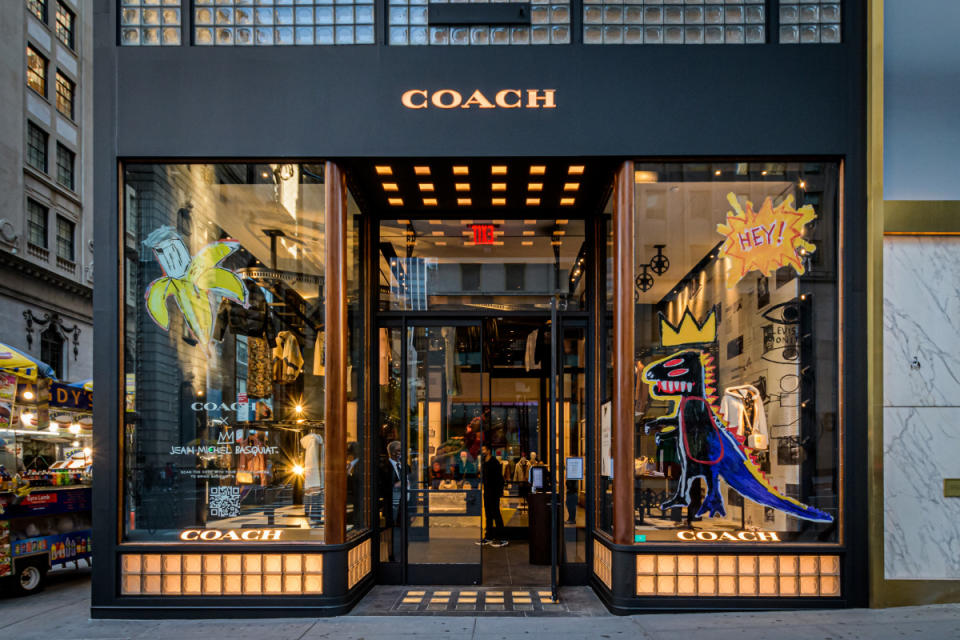FTC Sues to Block Tapestry Inc.'s Acquisition of Capri Holdings

Photo: Erik McGregor/LightRocket via Getty Images
Confirming weeks of speculation, the United States' Federal Trade Commission (FTC) issued an administrative complaint and authorized a lawsuit in federal court to block Tapestry Inc.'s $8.5 billion acquisition of Capri Holdings Limited.
First announced last August, the deal would create the first major U.S.-based fashion conglomerate, one that could emerge as a stateside competitor to European luxury groups like LVMH: Coach, Stuart Weitzman and Kate Spade — all presently owned by Tapestry — would merge with with Capri's portfolio consisting of Michael Kors, Jimmy Choo and Versace.
The FTC is taking issue with the fact that the acquisition would eliminate competition between these brands, giving Tapestry "a dominant share of the 'accessible luxury' handbag market," according to a press release. This is where the two companies "most vigorously compete against one another, mainly between Tapestry's Coach and Kate Spade brands against Capri's Michael Kors brand." The FTC argues that the deal could lead to higher prices and make it harder for new brands to enter the market; it also speculates that Tapestry might use the merger as leverage to buy up even more brands in the future.
"With the goal to become a serial acquirer, Tapestry seeks to acquire Capri to further entrench its stronghold in the fashion industry," Henry Liu, director of the FTC's Bureau of Competition, said, in a statement. "This deal threatens to deprive consumers of the competition for affordable handbags, while hourly workers stand to lose the benefits of higher wages and more favorable workplace conditions."
Citing a 5-0 vote, the FTC is seeking a temporary restraining order and a preliminary injunction to stop the deal. Unsurprisingly, Tapestry and Capri plan to fight the decision in court.
"There is no question that this is a pro-competitive, pro-consumer deal and that the FTC fundamentally misunderstands both the marketplace and the way in which consumers shop," Tapestry, Inc. said in a statement responding to the lawsuit Monday. "We have strong legal arguments in defense of this transaction and look forward to presenting them in court and working expeditiously to close the transaction in calendar year 2024."
Capri Holdings echoed these sentiments in its own statement: "The market realities, which the government's challenge ignores, overwhelmingly demonstrate that this transaction will not limit, reduce, or constrain competition. Tapestry and Capri operate in the fiercely competitive and highly fragmented global luxury industry. Consumers have hundreds of handbag choices at every price point across all channels, and barriers to entry are low. Capri intends to vigorously defend this case in court alongside Tapestry and complete the pending acquisition."
Both companies also pointed out that the deal has already been approved by regulators in the European Union and Japan. The U.S. was the last jurisdiction that needed to sign off.
The FTC has been especially aggressive in recent years in trying to block deals it sees as anti-competitive. However, this type of action is rarely seen in the fashion industry, where there's certainly no shortage of competing brands.
Never miss the latest fashion industry news. Sign up for the Fashionista daily newsletter.

 Yahoo Finance
Yahoo Finance 